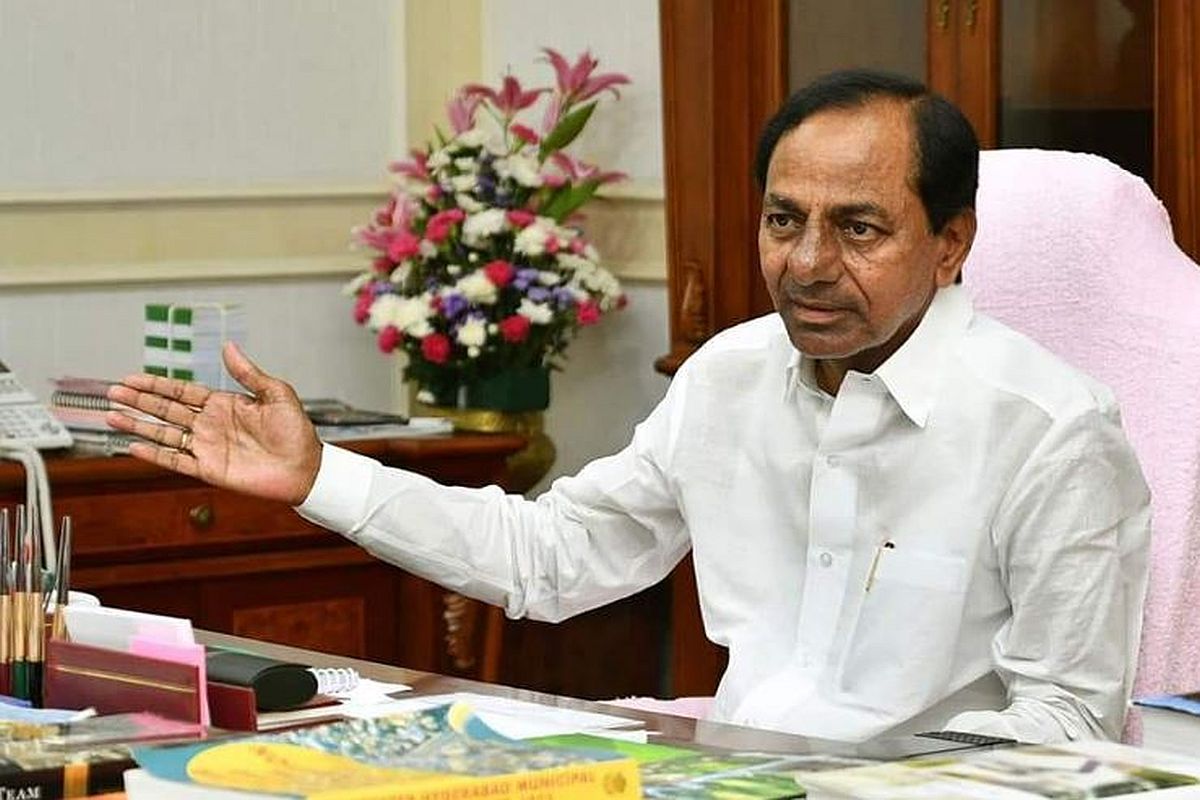First GBS case in Telangana reported
In the first case of Guillain-Barre Syndrome (GBS) reported in Telangana, a 25-year-old woman from Siddipet has been admitted to a private hospital here with similar symptoms.
In effect, Mr Rao seemed to suggest he was so determined to keep people in his state alive that he was even ready to kill them to achieve this end.

Telangana Chief Minister K Chandrasekhar Rao. (Photo: Twitter | @trspartyonline)
The irony implicit in Telangana chief minister K Chandrasekhar Rao’s threat to shoot at sight those who violate curfew restrictions imposed by the Covid-19 pandemic must have escaped the politician when he took to Twitter to issue this dire warning.
In effect, Mr Rao seemed to suggest he was so determined to keep people in his state alive that he was even ready to kill them to achieve this end. Before other leaders take the cue from the Telangana CM, and embark on this dangerous path, it is necessary for administrations to pause and reflect.
Advertisement
In the past, curfews were imposed in the wake of violent disturbances and in a bid to lock down troublemakers; shoot at sight orders were an extreme corollary of this measure. What India and many other parts of the world experience today are lockdowns aimed at containing the spread of a disease for which there is no cure.
Advertisement
And if people sometimes violate the terms of these lockdowns, it is and can only be to extend their tenuous grip on life to procure essentials, or to seek resolution for problems that otherwise seem insoluble.
In such an unprecedented situation, the state must act equally with firmness and empathy, and not follow setpiece prescriptions such as enforcing restrictions by threatening to shoot people or beating them up, as has been reported from many states.
Mr Rao and other state leaders would do well to take their cue from the Prime Minister, whose entreaties to fellow citizens even while announcing a 21-day lockdown were thoughtful and compassionate, not dictatorial or threatening.
They must also realise that the policeman’s rifle is the last weapon in an administration’s armoury; if one day he refuses to fire on members of his community, order will collapse, and laws will lie in tatters.
If ever there was need for restraint, it is now; possession of a Twitter account must not make twits out of us. Instead of issuing threats, governments around the country would do well to ensure that they fulfil their part of the new social contract they have offered to citizens ~ in effect that if citizens consent to remain sequestered, the state shall ensure they are not deprived of life’s essentials.
For, even as exceptions to movement restrictions are made clear, they remain largely on paper. Online deliveries of essential foodstuffs and medicines are a case in point. While they are on paper exempt from restrictions, most e-commerce websites report an inability to service orders because of the problems they face.
Administrators around the country would do well to ensure essential service providers are able to function. Equally, they would do well to remember that it is the poorest of the poor, deprived of daily wages and bereft of savings, who need most the benevolence of the state.
Let us not discover at the end of 21 days, or as long as it takes to contain Covid-19, that in the process of saving lives from the ravages of a disease, we killed our people from hunger. Or worse, from gunshot wounds.
Advertisement